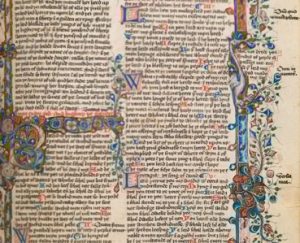I was visited this morning by a pair of Jehovah’s Witnesses, doing the door-to-door ministry for which they’re most-famous, and I was reminded of an interesting quirk in the practices of the WTS. If you know anything at all about their beliefs, you’re probably aware that Jehovah’s Witnesses generally refuse blood transfusions.
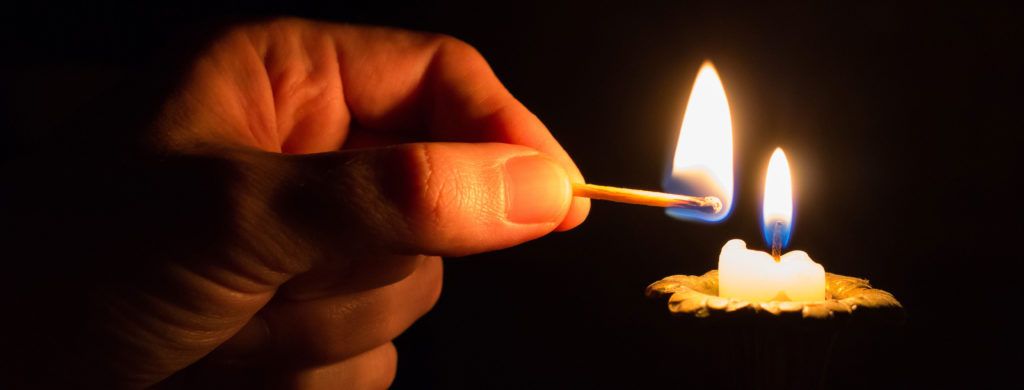
I first became aware of their policy of rejecting potentially life-saving blood when I was just a child. A school friend of mine (this one!), following a problematic tonsillectomy, found his life at risk because of his family’s commitment to this religious principle. Because I’ve always been interested in religion and the diversity of theological difference I ended up looking into the background of their practice… and I came to a very different scriptural interpretation.
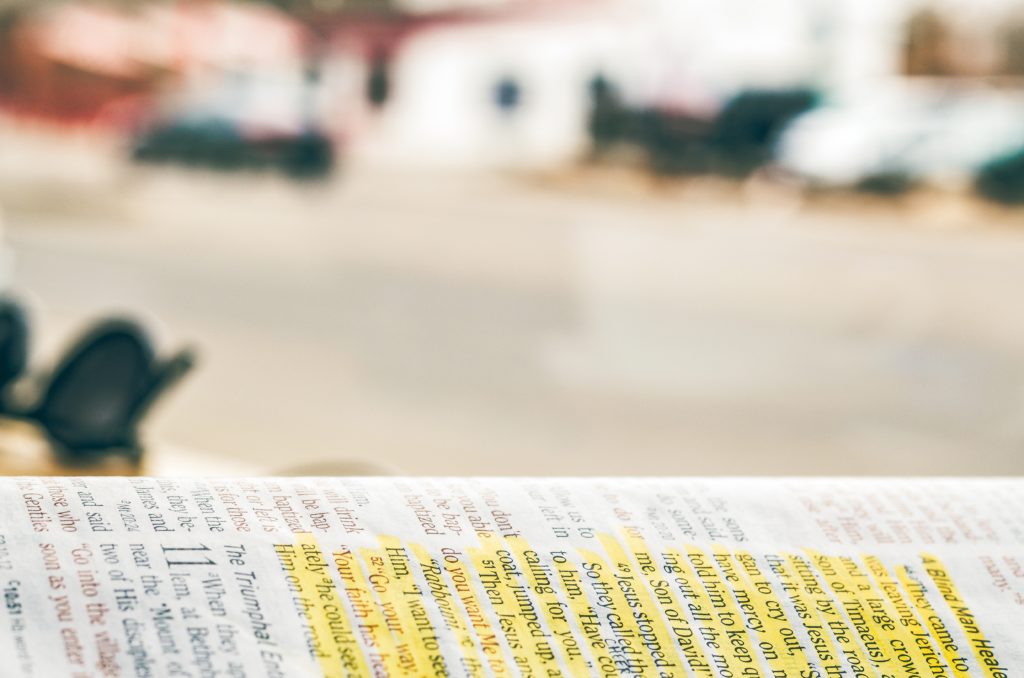
First, it’s worth understanding that Jehovah’s Witnesses aren’t opposed to most medical care, unlike for example the Church of Christian Scientists who eschew basically all medical science in favour of prayer (eww). No: Jehovah’s Witnesses specifically single out blood transfusions as prohibited (they’ve flip-flopped on a few other treatments) which, when you think about it, is pretty weird.
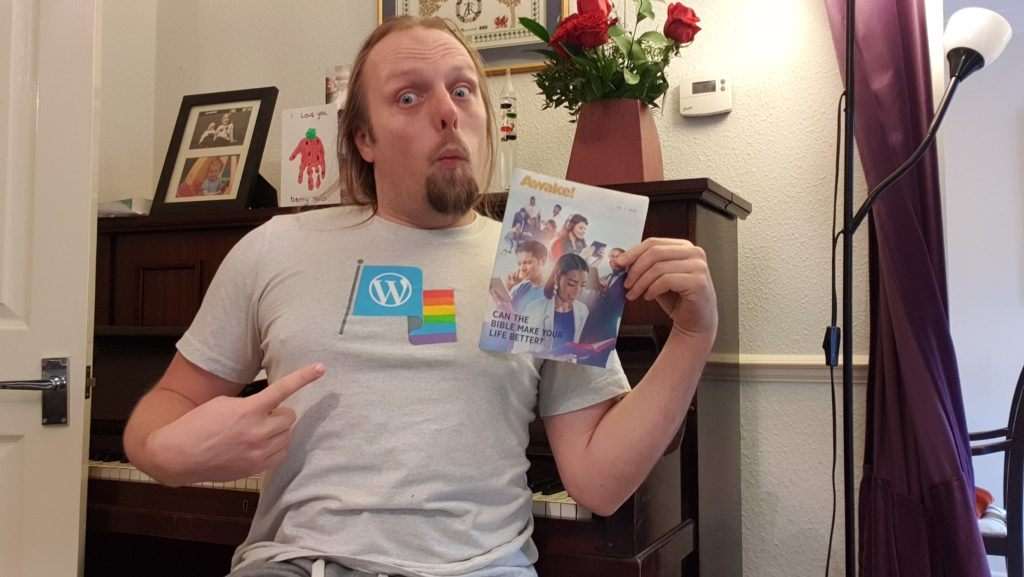
The biblical basis for this prohibition comes from Leviticus 17:12-14, Acts 15:19, Acts 21:25, and – crucially, because it predates and almost-certainly informs them – Genesis 9:3-4, which reads (NIV):
Everything that lives and moves about will be food for you. Just as I gave you the green plants, I now give you everything. But you must not eat meat that has its lifeblood still in it.
This is God speaking to Noah, by the way. Sexacentenarian Noah’s took a six-week cruise on a floating zoo and God’s just said “boat number 1, your time is up… and by Me you’d better be horny ‘cos it’s time to go forth and multiply.” God invents the rainbow as a promise not to reformat-and-reinstall again, and then follows it up with a handful of rules because He’s a big fan of rules. And even though blood transfusions wouldn’t be invented for thousands of years, the Jehovah’s Witnesses almost-uniquely feel that this prohibition on consuming blood covers transfusions too.
That all sounds fair enough. I mean, it requires a pretty heavy-handed interpretation of what was meant but that’s par for the course for the Bible and especially the Old Testament.
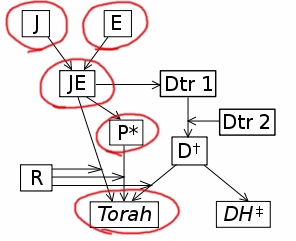
But let’s take a step back. Here’s those verses again, this time in Hebrew:
כָּל־רֶ֙מֶשׂ֙ אֲשֶׁ֣ר הוּא־חַ֔י לָכֶ֥ם יִהְיֶ֖ה לְאָכְלָ֑ה כְּיֶ֣רֶק עֵ֔שֶׂב נָתַ֥תִּי לָכֶ֖ם אֶת־כֹּֽל׃
אַךְ־בָּשָׂ֕ר בְּנַפְשׁ֥וֹ דָמ֖וֹ לֹ֥א תֹאכֵֽלוּ׃
A modern translation would be:
Every moving living thing is your food, like the plants you were already given. But you may not eat any creature that is still alive.
“Still alive?” That’s a very different way of reading it, right? Suddenly this strange verse about abstaining from, I don’t know, black pudding (and possibly blood transfusions) becomes a requirement to kill your dinner before you chow down.
This is like Deuteronomy 14:21, where it says “Do not cook a young goat in its mother’s milk.” The same directive appears in Exodus 34:26 but I prefer Deuteronomy’s because it also has this really surreal bit about how it’s not okay to eat roadkill but you can serve it to your immigrant friends. It turns out that kid-boiled-in-mother’s-milk was an old Canaan recipe and pagan tribes used to eat it ritualistically, so a prohibition on the practice by Noah and his descendants was not only an opposition to animal cruelty but a statement against polytheism.
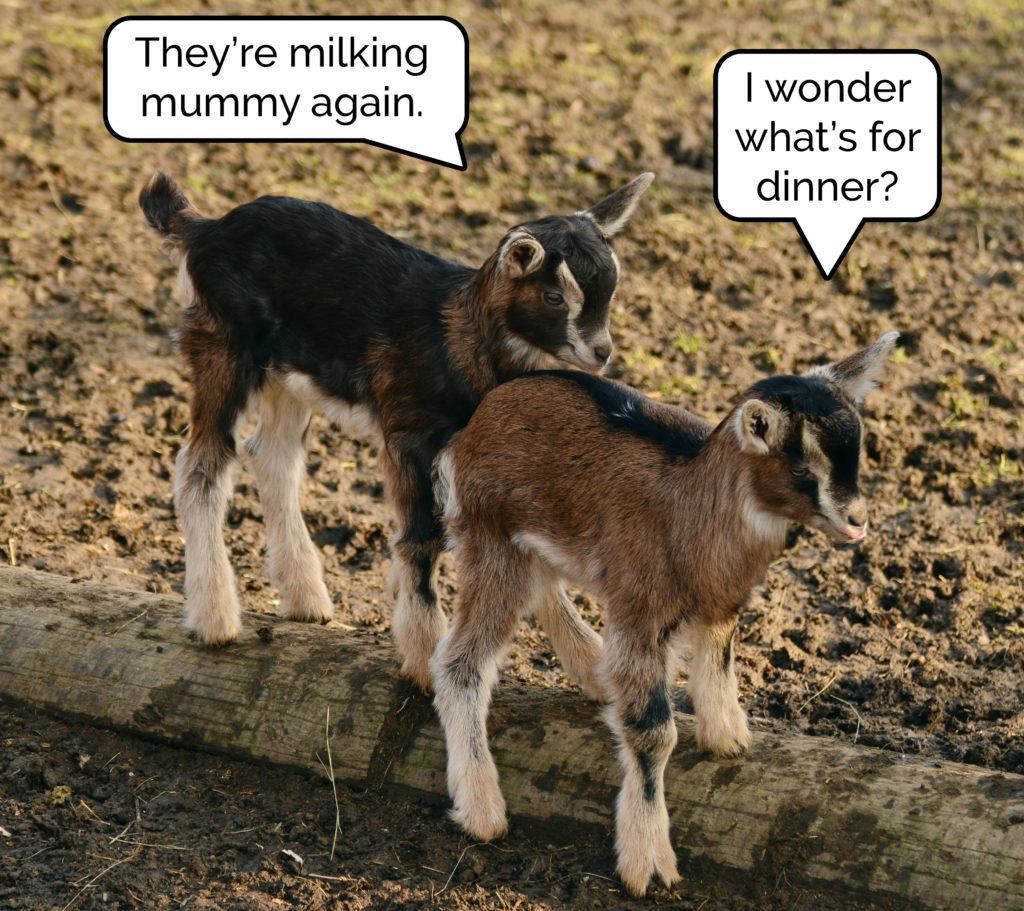
Could “eating things alive”, which is specifically forbidden in Judaism, be – like goat-in-goat-juice – another pagan ritual, formerly widespread, that the early Israelites were trying to outlaw? Quite possibly.
But there’s a further possible interpretation that I feel is worth looking at. Let’s paint a picture. Again, let’s assume despite the mountains of evidence to the contrary that the bible is literally true, which meets people who use the covenant of Genesis as a basis for medical decisions much more than half-way:
God’s just declared bankruptcy on his first “Earth” project and wiped the slate clean. He’s had the RNG – I’m assuming that God plays dice – roll up a new landmass, and he’s populated it with one family of humans, plus two of every kind of land animal. Possibly more of the fast breeders like the insects and some of the small mammals, I suppose, depending on how closely they were housed in the ark. Don’t make me explain this to you.
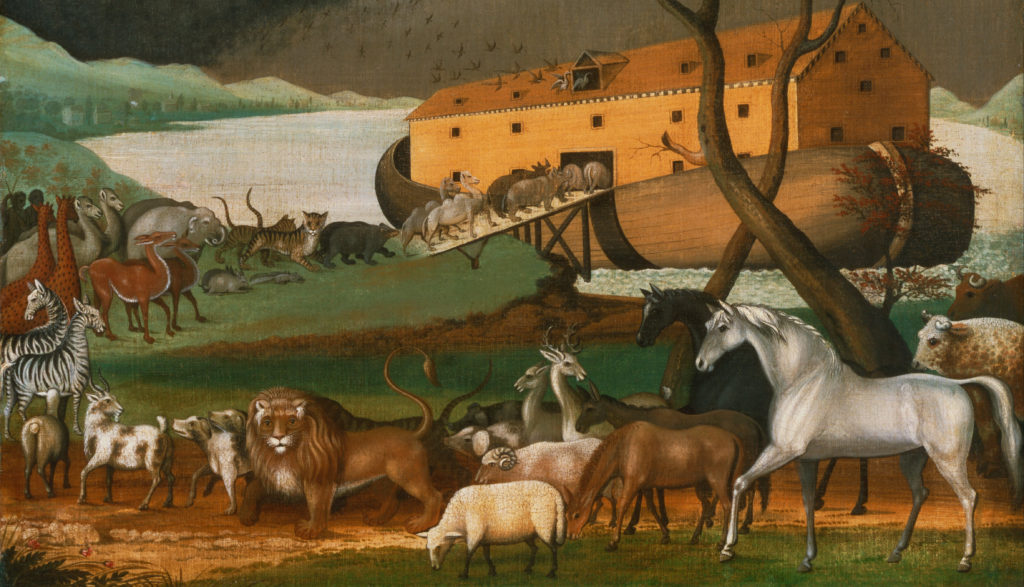
Japheth: “Ham.”
Ham: “Gulp.”
Japheth: “No, I mean a pig.”
Ham: “We’ve only got two left. Let’s just smoke some kush instead; God gave dad all the plants.”
Cush: “Did somebody say my name?”
Let’s assume that God doesn’t want the disembarking humans to immediately eat all of the animals with no concern for sustainability. This is, of course, absolutely what we humans do: if we take a biblical-literalism viewpoint, it’s a miracle that the delicious dodo would last until the 17th century CE rather than being eaten on the first post-flood day. God’s sort-of promised that the humans will be allowed to eat almost anything they like and that He’ll stop meddling, but He doesn’t want a mass-extinction, so what does He do? He says:
You can eat all the plants you want. But don’t eat any of the animals that are alive right now: let them breed a bit first.
This has always seemed to me to be the obvious way to interpret the commandment not to eat living animals: don’t eat the ones that are living at the moment. Certainly more-rational than “don’t have blood transfusions.” And if what God (allegedly) said to Noah is to be treated as a rule that still stands today, rather than just at the time, then perhaps it’s vegetarianism for which Jehovah’s Witnesses should best be known. That way, they’d get to argue with the hosts of barbecues about what goes into their bodies rather than with judges about what goes into their childrens’.
But try telling them that. (Seriously: give it a go! They’re usually more than happy to talk about scripture, even if you’re a little bit sarcastic!)
